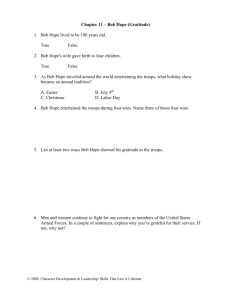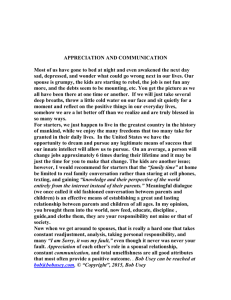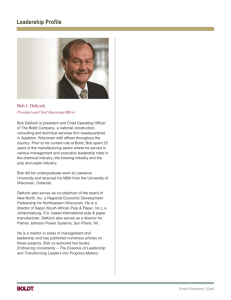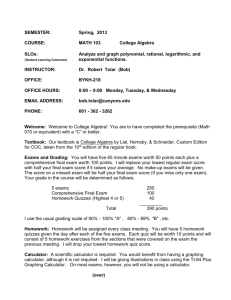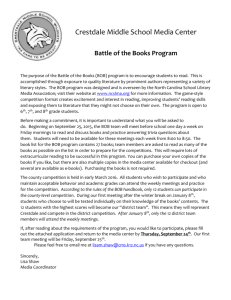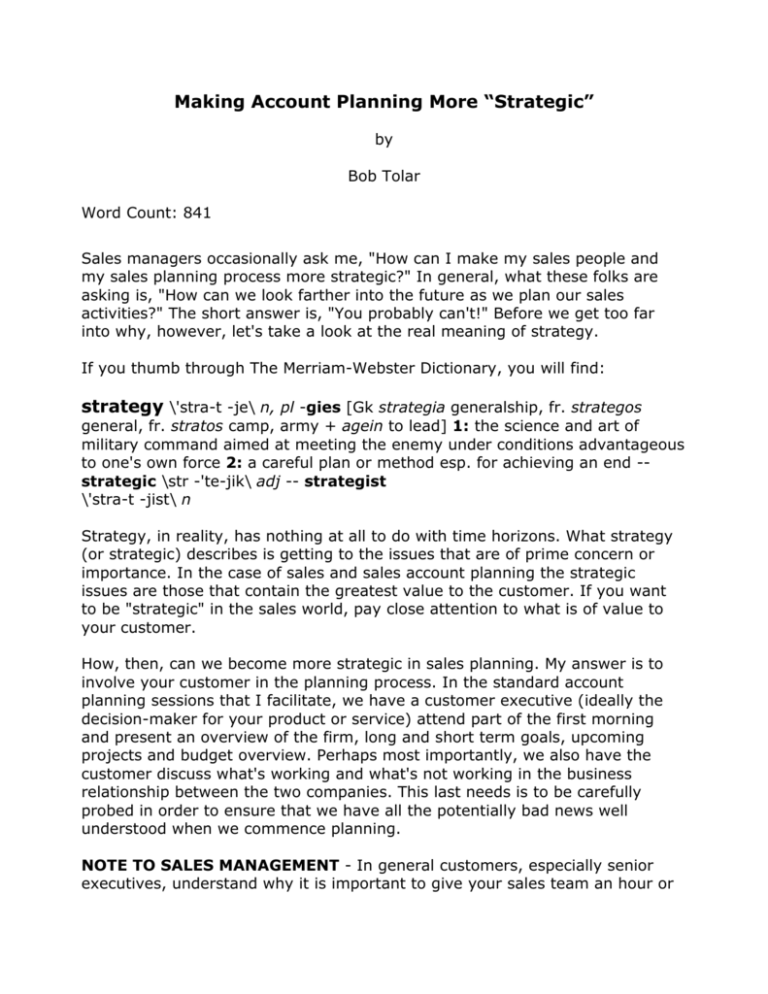
Making Account Planning More “Strategic”
by
Bob Tolar
Word Count: 841
Sales managers occasionally ask me, "How can I make my sales people and
my sales planning process more strategic?" In general, what these folks are
asking is, "How can we look farther into the future as we plan our sales
activities?" The short answer is, "You probably can't!" Before we get too far
into why, however, let's take a look at the real meaning of strategy.
If you thumb through The Merriam-Webster Dictionary, you will find:
strategy \'stra-t -je\ n, pl -gies [Gk strategia generalship, fr. strategos
general, fr. stratos camp, army + agein to lead] 1: the science and art of
military command aimed at meeting the enemy under conditions advantageous
to one's own force 2: a careful plan or method esp. for achieving an end -strategic \str -'te-jik\ adj -- strategist
\'stra-t -jist\ n
Strategy, in reality, has nothing at all to do with time horizons. What strategy
(or strategic) describes is getting to the issues that are of prime concern or
importance. In the case of sales and sales account planning the strategic
issues are those that contain the greatest value to the customer. If you want
to be "strategic" in the sales world, pay close attention to what is of value to
your customer.
How, then, can we become more strategic in sales planning. My answer is to
involve your customer in the planning process. In the standard account
planning sessions that I facilitate, we have a customer executive (ideally the
decision-maker for your product or service) attend part of the first morning
and present an overview of the firm, long and short term goals, upcoming
projects and budget overview. Perhaps most importantly, we also have the
customer discuss what's working and what's not working in the business
relationship between the two companies. This last needs is to be carefully
probed in order to ensure that we have all the potentially bad news well
understood when we commence planning.
NOTE TO SALES MANAGEMENT - In general customers, especially senior
executives, understand why it is important to give your sales team an hour or
two of your time. They recognize that the better your team understands their
business and its needs, the better you are able to provide solutions.
Sometimes, however, you will need to sell the concept. One way to influence
the customer executive to allocate time to your planning session is to have one
of your senior executives make the request.
For very large global or national accounts, I recommend a more formal
approach to identifying those issues that have value to the customer. A oneday executive planning session, conducted in advance of the account planning
sessions provides an excellent vehicle to establish high-level dialog between
the two companies. The focus of this one-day pre-planning session is to
establish agreement between the firms on two or three strategic business
initiatives that will be pursued together. Having come to this strategic
agreement, the account team can then convene and develop the action plans
to make it happen.
Now let's talk about the role of "long-term" planning. In the sales arena, longterm planning is really not operative. In fact, many have come to believe that
long-term planning is passe` in general. To that point, Stan Davis and
Christopher Meyer, authors of the penetrating book "BLUR" say:
"What good are plans if the Speed of Business means they are obsolete
before an organization can understand and implement them? … If
long-term plans are useless, good short-term ones are more valuable
than ever."
So, we've learned that in the sales world short-term planning, with a time
horizon of nine to twelve months, is as far into the visible future as we can
see. And there's absolutely nothing wrong with that. Over the course of the
year, we'll win some, lose some, identify some new opportunities, solve some
problems and identify some new ones. The key to success is to get the sales
team started down a path of executing the plan. Unforeseen obstacles will
invariably arise - these can be dealt with as they come. Focus on developing
good short-range plans, get the team committed to executing on the plan and
you will soon reap the benefits.
Robert Tolar has 25 years of experience in the information technology
industry. Copyright © 2000,Robert Tolar. All rights reserved. Bob developed
and field tested the strategic account planning methodology in the late 1980's
and launched his own business, Robert Tolar Marketing, in 1993. Bob has held
a number of sales management positions with companies such as General
Instrument, Wang Laboratories and Data General. He has experience as the
VP of Strategic Accounts, VP Sales and Marketing for a technology start-up
company and Field Marketing Director for a Fortune 500 company. For
additional information about Robert, please contact the Frog Pond Group at
800-704-FROG (3764) or email susie@frogpondgroup.com;
http://www.frogpondgroup.com.



